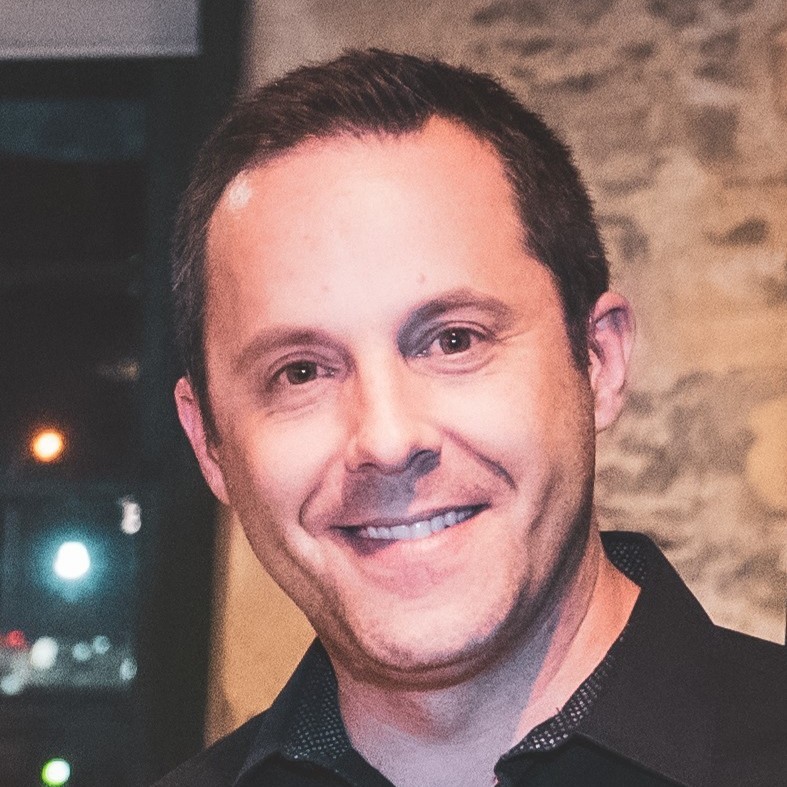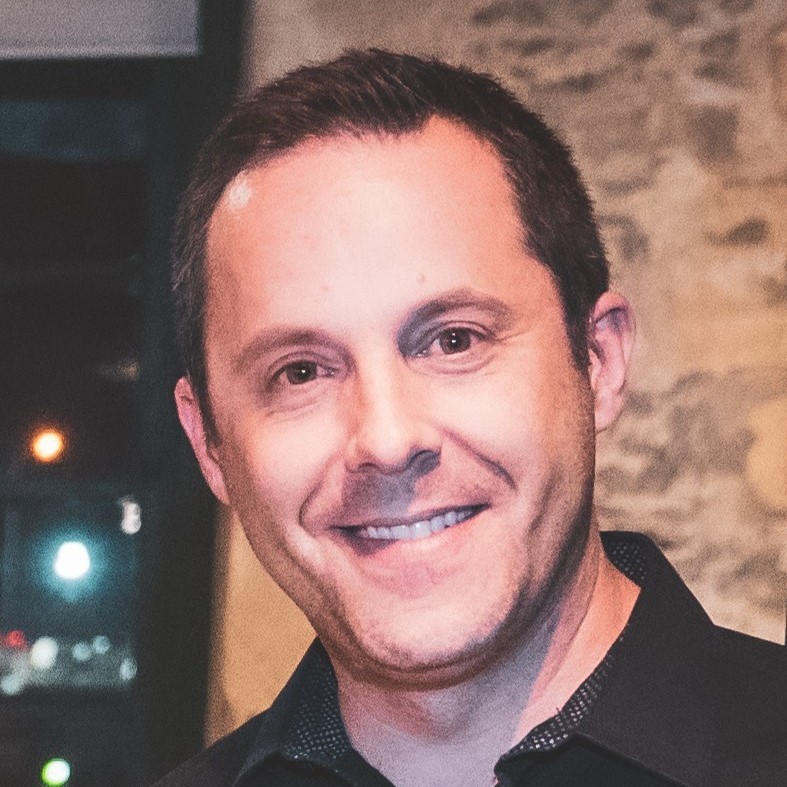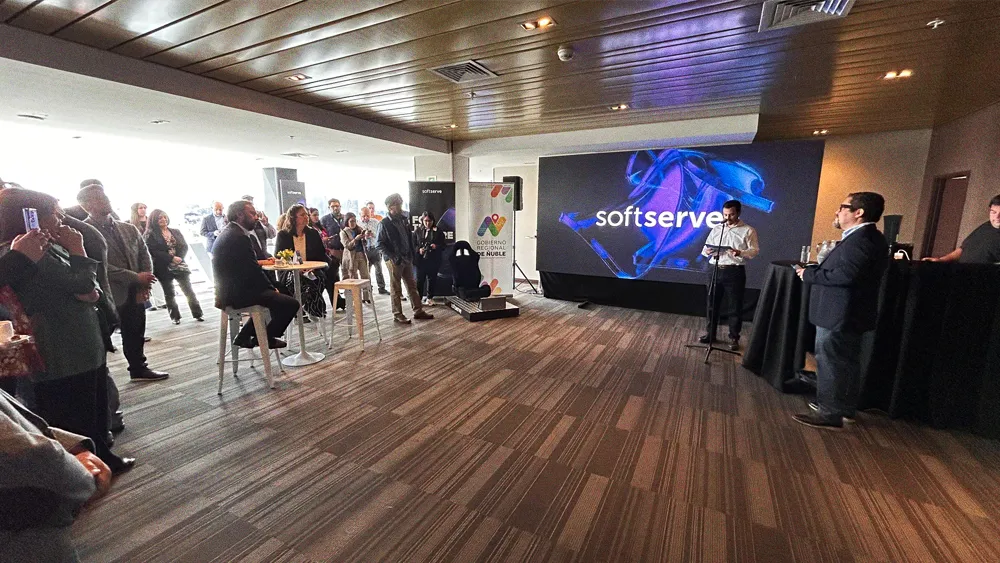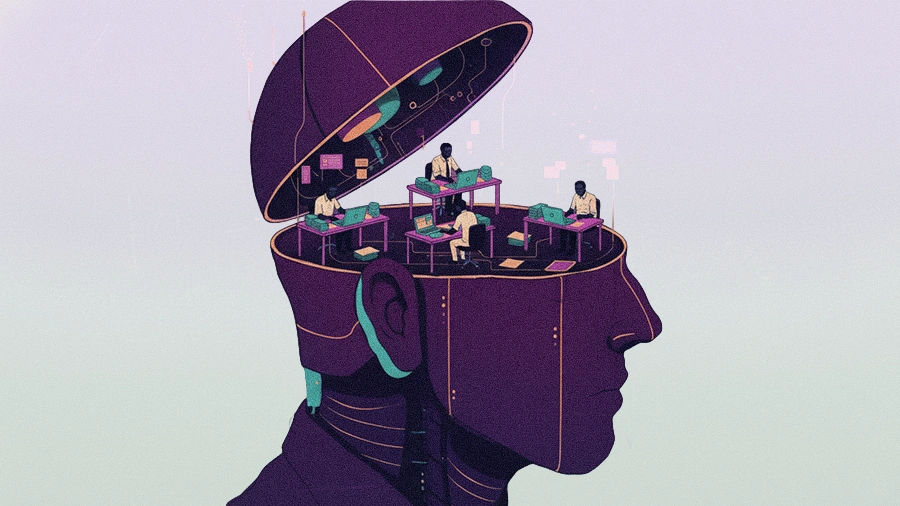Why hyper-personalization in HR might be the key to unlocking efficiency

Key Points
The era of clunky HR software is over, replaced by intelligent, hyper-personalized tools that are transforming the industry.
Jeff Waldman, founder of ScaleHR, explains that this new technology demands a new strategy, starting with closing the “ABC to DEF” skills gap by investing in internal talent.
Without a cohesive plan, companies risk creating a “Shadow AI” problem, pointing to one organization that caused “havoc” by mishandling private data.
Leaders who embrace this new reality will become far more effective, while those who don’t risk being left behind.
If you are not willing to take a risk and jump into the sea of AI and this new way of using technology, you will get left behind. You can be so much more effective, so much more efficient, and you get better outcomes because you're using something that data-wise no human could ever achieve.

Jeff Waldman
Founder
ScaleHR
For years, HR technology was seen as a necessary evil—a landscape of clunky, siloed systems that created more workarounds than workflows. But a new wave of intelligent, user-centric software is finally delivering on the promise of true partnership, transforming technology from a roadblock into a superhighway. The consensus from the front lines is clear: we don’t need to rely on bad software anymore. For HR leaders, this unlocks a new reality where almost anything is possible.
We spoke with Jeff Waldman, a unique voice whose expertise lies at the intersection of this transformation. As a former HR leader turned HR tech advisor, Waldman now helps technology companies “cut through the noise” as the Founder of ScaleHR and host of the Unmuted podcast. He has seen the industry’s pain points from both sides—as the practitioner implementing the tools and the strategist bringing them to market. Drawing on this dual perspective, he argued that the most significant challenge in the market today isn’t a lack of talent, but a fundamental misunderstanding of what skills are actually needed.
“The skill requirements of organizations and work is changing so fast. I don’t think the market has caught up to that yet,” Waldman explained. “It’s like having a whole workforce trained in A, B, and C when the real demand is for D, E, and F—and the shift hasn’t caught up yet.” This “ABC to DEF” skills gap has created a frustrating paradox where companies struggle to hire even as talented people search for work. The result, according to Waldman, is a futile and costly exercise in wishful thinking, driven by a failure to invest in internal talent.
Unicorn hunting: The problem isn’t just speed; it’s clarity. HR leaders themselves often can’t articulate the precise skills they’re looking for. “If they’re not clear on what they need from talent, then how can they find it?” Waldman asked. “They’re always trying to find these unicorns, but there’s no such thing.”
Companies are struggling on both fronts—hiring externally for roles they can’t quite define, while failing to adequately invest in reskilling internally. “When you build your organization, you either acquire talent or you build it. It’s one or the other.” While many talk about preparing employees for the “future of work” with upskilling in areas like data analytics, workflow automation, and AI, Waldman doesn’t see it happening at the scale or speed required.”
The disconnect creating chaos inside organizations. As AI tools become more accessible, a new form of fragmentation is emerging. A recent BambooHR study found that execs and employees are strongly divided on AI usage, with different groups adopting tools at different rates and for different purposes. Without a cohesive plan, this creates what Waldman called a “Shadow AI” problem, exposing companies to significant risk.
The strategy vacuum: “One organization that I know of, they were just playing around with ChatGPT,” Waldman recalled. “They didn’t realize that putting private information on a public platform could be quite damaging.” The incident “caused quite a bit of havoc” and forced the company to slam the brakes on all AI use. The only solution, he argued, is a full company-wide approach designed to “wrap compliance, security standards, training, and learning around it.”
A new era of technology demands a new level of strategic thinking, and the payoff is immense. Waldman described the industry as moving into an age of “hyper-personalization,” where HR teams are no longer captive to one-size-fits-all software. For those who embrace this change, the gains in efficiency and effectiveness will be massive, creating a clear dividing line between leaders and laggards.
The personalization dividend: “If you are not willing to take a risk and jump into the sea of AI and this new way of using technology, you will get left behind,” Waldman stated. He pointed to performance management as a prime example. Where leaders once relied on subjective memory, new tools can now collect and analyze performance data over time, identify trends, and even guide managers on how to approach difficult conversations. “You can be so much more effective, so much more efficient, and you get better outcomes because you’re using something that data-wise no human could ever achieve.”
The shift from restrictive technology to empowering platforms represents more than just an operational upgrade; it’s a fundamental change in what it means to work in HR. It’s a moment of liberation, freeing practitioners to finally focus on the high-value, strategic work they’ve always wanted to do.
“You’re starting to see people see the light of day going, ‘Oh my God, I can actually do all of this,'” Waldman reflected. “Anything is now possible with this idea of the hyper-personalization of software.” As a former HR leader himself, the feeling is personal. “If I had some of these tools 15 years ago, I would have been on cloud nine. I would have been able to do so much more.”
You're starting to see people see the light of day going, 'Oh my God, I can actually do all of this.' Anything is now possible with this idea of the hyper-personalization of software.

Jeff Waldman
Founder
ScaleHR
You're starting to see people see the light of day going, 'Oh my God, I can actually do all of this.' Anything is now possible with this idea of the hyper-personalization of software.

Jeff Waldman
Founder
ScaleHR
Related articles
TL;DR
The era of clunky HR software is over, replaced by intelligent, hyper-personalized tools that are transforming the industry.
Jeff Waldman, founder of ScaleHR, explains that this new technology demands a new strategy, starting with closing the “ABC to DEF” skills gap by investing in internal talent.
Without a cohesive plan, companies risk creating a “Shadow AI” problem, pointing to one organization that caused “havoc” by mishandling private data.
Leaders who embrace this new reality will become far more effective, while those who don’t risk being left behind.

Jeff Waldman
ScaleHR
Founder

Founder
For years, HR technology was seen as a necessary evil—a landscape of clunky, siloed systems that created more workarounds than workflows. But a new wave of intelligent, user-centric software is finally delivering on the promise of true partnership, transforming technology from a roadblock into a superhighway. The consensus from the front lines is clear: we don’t need to rely on bad software anymore. For HR leaders, this unlocks a new reality where almost anything is possible.
We spoke with Jeff Waldman, a unique voice whose expertise lies at the intersection of this transformation. As a former HR leader turned HR tech advisor, Waldman now helps technology companies “cut through the noise” as the Founder of ScaleHR and host of the Unmuted podcast. He has seen the industry’s pain points from both sides—as the practitioner implementing the tools and the strategist bringing them to market. Drawing on this dual perspective, he argued that the most significant challenge in the market today isn’t a lack of talent, but a fundamental misunderstanding of what skills are actually needed.
“The skill requirements of organizations and work is changing so fast. I don’t think the market has caught up to that yet,” Waldman explained. “It’s like having a whole workforce trained in A, B, and C when the real demand is for D, E, and F—and the shift hasn’t caught up yet.” This “ABC to DEF” skills gap has created a frustrating paradox where companies struggle to hire even as talented people search for work. The result, according to Waldman, is a futile and costly exercise in wishful thinking, driven by a failure to invest in internal talent.
Unicorn hunting: The problem isn’t just speed; it’s clarity. HR leaders themselves often can’t articulate the precise skills they’re looking for. “If they’re not clear on what they need from talent, then how can they find it?” Waldman asked. “They’re always trying to find these unicorns, but there’s no such thing.”
Companies are struggling on both fronts—hiring externally for roles they can’t quite define, while failing to adequately invest in reskilling internally. “When you build your organization, you either acquire talent or you build it. It’s one or the other.” While many talk about preparing employees for the “future of work” with upskilling in areas like data analytics, workflow automation, and AI, Waldman doesn’t see it happening at the scale or speed required.”

Jeff Waldman
ScaleHR
Founder

Founder
The disconnect creating chaos inside organizations. As AI tools become more accessible, a new form of fragmentation is emerging. A recent BambooHR study found that execs and employees are strongly divided on AI usage, with different groups adopting tools at different rates and for different purposes. Without a cohesive plan, this creates what Waldman called a “Shadow AI” problem, exposing companies to significant risk.
The strategy vacuum: “One organization that I know of, they were just playing around with ChatGPT,” Waldman recalled. “They didn’t realize that putting private information on a public platform could be quite damaging.” The incident “caused quite a bit of havoc” and forced the company to slam the brakes on all AI use. The only solution, he argued, is a full company-wide approach designed to “wrap compliance, security standards, training, and learning around it.”
A new era of technology demands a new level of strategic thinking, and the payoff is immense. Waldman described the industry as moving into an age of “hyper-personalization,” where HR teams are no longer captive to one-size-fits-all software. For those who embrace this change, the gains in efficiency and effectiveness will be massive, creating a clear dividing line between leaders and laggards.
The personalization dividend: “If you are not willing to take a risk and jump into the sea of AI and this new way of using technology, you will get left behind,” Waldman stated. He pointed to performance management as a prime example. Where leaders once relied on subjective memory, new tools can now collect and analyze performance data over time, identify trends, and even guide managers on how to approach difficult conversations. “You can be so much more effective, so much more efficient, and you get better outcomes because you’re using something that data-wise no human could ever achieve.”
The shift from restrictive technology to empowering platforms represents more than just an operational upgrade; it’s a fundamental change in what it means to work in HR. It’s a moment of liberation, freeing practitioners to finally focus on the high-value, strategic work they’ve always wanted to do.
“You’re starting to see people see the light of day going, ‘Oh my God, I can actually do all of this,'” Waldman reflected. “Anything is now possible with this idea of the hyper-personalization of software.” As a former HR leader himself, the feeling is personal. “If I had some of these tools 15 years ago, I would have been on cloud nine. I would have been able to do so much more.”




